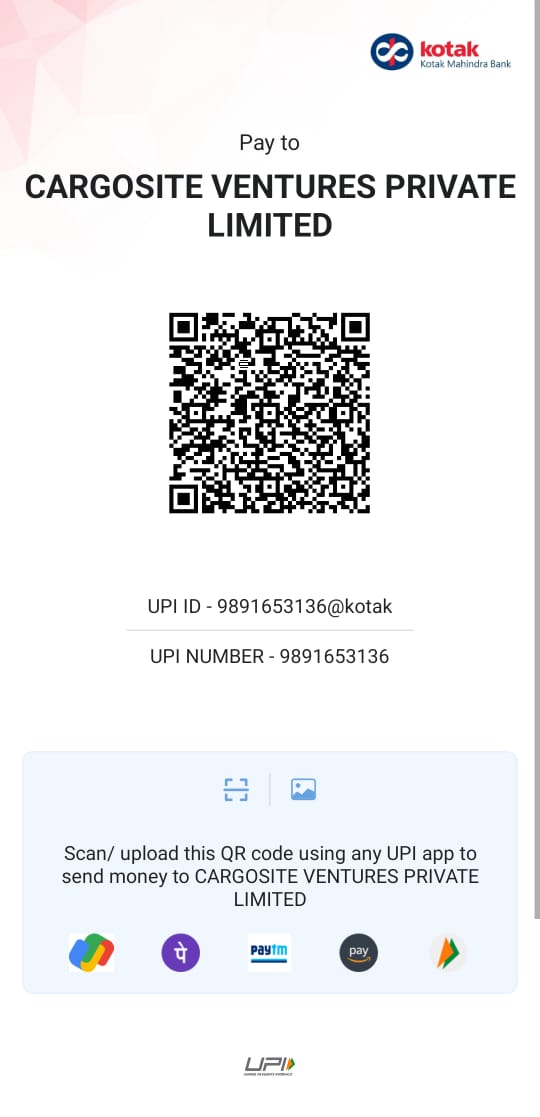Circular No. 24 /2015- Customs
F.No. 450/226/2014- Cus IV
Government of India
Ministry of Finance
Department of Revenue
Central Board of Excise and Customs
New Delhi, Dated: 14.10.2015
To
All Chief Commissioner of Customs / Customs (Preventive)
All Chief Commissioners of Customs and Central Excise
All Commissioners of Customs
All Commissioners of Customs and Central Excise
Sir / Madam,
Subject: Improving Ease of Doing Business Issuance of Electronic Delivery Orders -regarding
As part of Government's initiatives for improving Ease of Doing Business, several facilitation measures are being taken by the
Central Board of Excise & Customs. After consultation with stakeholders, it has emerged that introduction of electronic
messaging for issue of Delivery Order instead of a paper based Delivery Order will result in considerable simplification in the
Customs Clearance process, and can demonstrably reduce transaction costs and time taken in the clearance of Cargo. The
use of electronic Delivery Orders was also identified at the first Central Customs Clearance Facilitation Commitee meeting
held on 28 July 2015 as an important trade facilitation measure.
2. Before Importers or their Customs Brokers are allowed to pick up their import cargo, they are required to pay the Shipping
Line/Airline or Consol Agent, the freight and Delivery Order Charges (or D.O. charges). Once these charges are collected, the
latter will in turn send to the Custodian the Delivery Order while also advising the importer or the Customs Broker of the
issuance of the Delivery Order.
3. Traditionally, Airline and Shipping Lines have allowed the pick-up of import cargo by conveying a paper-based Delivery
Order in a format acceptable to the Custodian. The importer or his Customs Broker visits the counter of the Shipping
Line/Airline or Consol Agent, pays the D.O. Charges, collects a paper copy of the Delivery Order, and hand carries it to the
office of the Custodian. Recently, however, steps have been taken by some Shipping Lines and Airlines in co-operation with
Custodians to provide the Delivery Order electronically in mutually agreed formats, allowing the entire process to be completed
electronically, without the importer or his Customs Broker having to visit either office.
4. To implement the electronic Delivery Order System, as a prerequisite, the Custodian should have the technical capability to
implement an electronic messaging system for the receipt of electronic Delivery Order. Shipping Lines, Airlines and Consol
Agents should have the capacity to generate electronic Delivery Order in the required format.
5. Apart from the above prerequisites, it will facilitate trade if Shipping Lines, Airlines and Consol Agents can adopt a system
of electronic invoicing of all charges along with the facility to conclude the payment process using e-Payment facilities. It is only
then that the importer or his Customs Broker can avoid the mandatory personal visit to the office/counter of the Shipping Line/
Airline or Consol Agent.
6. The introduction of electronic Delivery Order or electronic Payment of D.O. Charges do not change any of the current
Customs procedures. Besides, all other procedures followed by the Custodians, i.e., due diligence involved in the verification
of the Delivery Orders, obtaining 'Out of Charge' from Customs, and issuance of 'Gate Pass', etc will continue.
7. In respect of some categories of imports, namely - unaccompanied baggage, Direct Delivery, and one-time individual
importers, the Shipping Line/ Airline may retain manual (i.e. paper copy) of the Delivery Order, if desired. Further, if for
technical reasons, in case of any failure of the system of electronic transfer of Delivery Order, the concerned Shipping Line/
Airline or Consol Agent may issue manual Delivery Order, as a purely temporary measure, in order to avoid any difficulty or
delay in clearance of imported goods.
8. It is expected that elimination of hard-copy Delivery Order and implementation of the proposed online system of Delivery
Order would enable Shipping Lines, Airlines and Consol Agents to issue Delivery Order at the earliest possible time in the
process of unloading of cargo.
9. Secure electronic transmission of Delivery Order would enhance the overall security and transparency of the cargo clearance
process. Custodians and carriers should ensure smooth implementation of this trade-friendly measure, while ensuring that no
difficulty is faced by any importer (or their authorized representative) in obtaining Delivery Orders or completing any other
formalities for clearance of goods.
10. To encourage the implementation of electronic Delivery Order, Chief Commissioners of Customs may play the role of
facilitators with the help of forums such as the CCFC. Commissioner of Customs, Air Cargo Complex, Sahar, had adopted a
two-stage process to implement the scheme. In the first stage, a Public Notice was issued inviting members of the Trade to
participate in trials, followed by another Public Notice for the full scale launch. The relevant Public Notices 05/2015 and
09/2015 may be found on Commissioner of Customs ACC, Sahars website
http://www.accmumbai.gov.in/aircargo/miscellaneous/pn_2015_16.html# .
11. All Customs formations may take necessary steps to bring the stakeholders together in order to encourage the
implementation of electronic transmission of Delivery Orders.
12. Difficulty faced, if any, may be brought to the notice of the Board at an early date.
Yours faithfully
(A.K.Sapra)
OSD (Customs IV)

